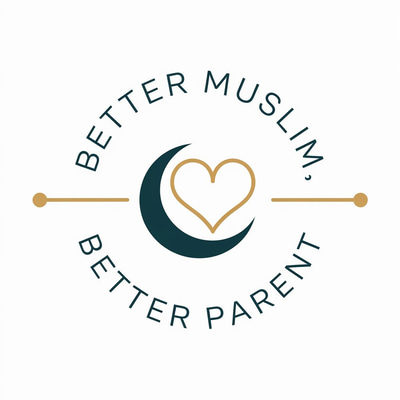The Way We Grew Up Won't Cut It
In a world where Islam is often misunderstood, how do we raise confident Muslim children? This post explores the challenges first-generation Muslim American parents face, and how we can create a home where Islam is celebrated, not explained. From making Eid a blockbuster event to normalizing conversations about faith, discover simple yet powerful ways to help your child embrace their identity with pride and confidence.
2/27/20253 min read


Why Your Child's Confidence in Islam Starts with You
I was six years old the first time I realized my lunch was "different." While my friends unwrapped PB&Js and Lunchables, I pulled out a foil-wrapped kebab sandwich my mom had lovingly packed. "What’s that smell?" someone asked, wrinkling their nose. That moment cemented a quiet insecurity about my identity that took years to shake.
Fast forward to today—I’m a parent, navigating the same balancing act with my own kids. How do we raise confident Muslim children in a country where their faith is often misunderstood, misrepresented, or simply not reflected in mainstream culture? More importantly, how do we make sure they don’t see Islam as something to "explain"—but rather something to celebrate?
The Identity Tightrope: First-Gen Muslim Parents Get It
If you’re a first-generation Muslim American, you know the drill. We grew up translating report cards, fielding awkward questions about fasting, and being the unofficial PR reps for an entire religion. Our parents had their own struggles—many of them were immigrants focused on survival, ensuring we had food, shelter, and, if they had their way, a career in medicine or engineering. Confidence? That was secondary.
Now, as parents ourselves, we’re not just raising kids—we’re raising Muslim kids in an era of TikTok trends, rising Islamophobia, and an ever-blurring line between culture and faith. And let’s be real: The old "because I said so" approach doesn’t cut it anymore. If we want our children to be confident in their faith, we have to be intentional about it.
Confidence in Faith Starts at Home
It’s easy to assume that Islamic pride comes naturally, but let’s face it—if our kids don’t see Islam being practiced with love, joy, and confidence at home, they won’t carry it outside the house. Here’s how we can change that:
1. Normalize Conversations About Faith
Instead of treating Islam as a list of "do’s and don’ts," integrate it into daily life.
Talk about Allah the way you talk about love, kindness, and ambition.
Encourage questions—yes, even the uncomfortable ones.
2. Celebrate, Don’t Just Observe
Eid should feel like a blockbuster event, not a side note to Christmas.
Decorate, give gifts, and make it a day they’ll brag about at school.
Teach them du’as the way kids learn nursery rhymes—fun and effortless.
3. Representation Matters—Everywhere
Fill your home with books and toys that reflect their identity.
Show them that being Muslim is not just "normal"—it’s something to be proud of.
Introduce them to role models beyond the usual suspects—think Ilhan Omar, Ibtihaj Muhammad, or even YouTube creators making halal food cool.
Small Wins That Make a Big Difference
Building confidence isn’t about grand gestures—it’s the small, daily reinforcements that add up. Here are a few simple ways to integrate pride and joy in Islam into your routine:
The "Bismillah" Habit
Say "Bismillah" before starting meals, car rides, and even Bluey marathons. Let it become second nature.
The Jummah Tradition
Friday prayers aren’t just for dads. Make it a family affair.
The Proud Lunchbox Move
If your kid packs biryani or hummus, don’t act like it’s weird—talk it up like it’s a five-star dish.
The Dua of the Day Challenge
Challenge your child to learn (or just listen to) one new du'a each week, and celebrate their progress.
The Takeaway: Confidence is Contagious
The reality? Kids mirror what they see. If we approach Islam with confidence, curiosity, and pride, they will too. If we hesitate, downplay, or treat it as a "weekend religion," they’ll pick up on that as well.
Raising Muslim kids in America isn’t about shielding them from different perspectives—it’s about giving them the tools to navigate the world without losing themselves. And that starts with us.
So, next time your kid asks why they can’t eat that pepperoni pizza at a birthday party, answer with confidence. Show them that being Muslim isn’t a restriction—it’s a flex.
And if someone asks about their lunch? Tell them to say, "It’s better than your Lunchable."
Striving to be better Muslims & better parents—one coffee (or chai) at a time,
Shawn & Farihah
Connect
Join our community for parenting and faith insights.
Explore
Engage
bettermuslimbetterparent@gmail.com
© 2025. All rights reserved.
